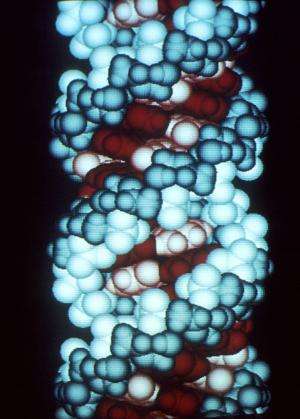September 26, 2014 report
Latest results from European BLUEPRINT initiative shed light on epigenetic effects

Researchers working on the European BLUEPRINT initiative (EBI) have published three papers in the journal Science, each outlining their part of the overall mission and explaining what they have found thus far. The initiative is a very large research project that involves 41 leading European Universities—its mission is to decipher the epigenome of blood cells. Elizabeth Pennisi offers an overview of the efforts of the overall team and explains how the work could result in a whole new era of immunological understanding.
Epigenetics is the study of changes to organisms that come about due to changes in gene expression but are not due to alterations of the genetic code itself. The EBI seeks to understand this process better. The researchers behind the three new papers are focused on immunity—they are trying to better understand both innate and adaptive immunity—how does each process work and what are the ways the two work together to combat illnesses. Each of the published papers represents the work of a large team of researchers working on a specific area of study, though some of the team members have been working in multiple areas.
One of the papers outlines the work involved in better understanding the process by which monocytes differentiate to macrophages—blood cells responsible for cleaning up debris. The researchers have studied the immune functions they perform and describe the epigenetic changes that lead to immune actions that have been discovered thus far.
In a second paper, a team reports on their progress in attempting to better understand why it is that sometimes an innate immune response appears to be capable of behaving like an adaptive response. They've been inducing trained immunity to white blood cells and in so by doing have discovered a switching mechanism that appears to change the process by which sugars are broken down when oxygen is present.
In the third paper the researchers describe their study of hematopoietic stem cells—precursors to all the blood cells in the body. Thus far they've found that certain types of the cells use RNA transcripts and have identified one of them that appears to be a driver for changes to the immune system.
The whole point of the project is to better understand how immunity works so that new ways can be developed to help the immune system when a natural response doesn't work, or doesn't occur the way it should—particularly in the very young or very old.
More information: Paper 1. www.sciencemag.org/lookup/doi/ … 1126/science.1251086
Paper 2. www.sciencemag.org/lookup/doi/ … 1126/science.1250684
Paper 3. www.sciencemag.org/lookup/doi/ … 1126/science.1251033
© 2014 Phys.org


















